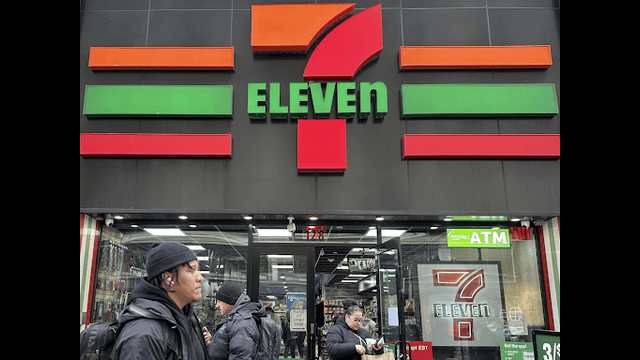
Shoppers browse inside a 7-Eleven convenience store. AP
A woman from Smithers, B.C., Crystal Tommy, had a serious fall in 2018 after stepping into a pothole outside a 7-Eleven store. Her ankle broke in three places. The injury changed her life, affecting her work and daily activities.
Tommy tried to settle the case without going to court. At one point, she offered to accept $125,000. But 7-Eleven rejected her offer. Instead, they chose to fight the case in court. In 2024, the court ruled against 7-Eleven and ordered the company to pay Tommy $907,000.
Double Court Costs Added
Now, a second ruling has added more costs. The judge, Emily Burke, said 7-Eleven must also pay double court costs. These costs cover things like medical reports, filing fees, and expert witnesses. Burke explained this rule exists to encourage early settlements. It rewards fair offers and punishes those who refuse them.
The judge didn't reveal the exact cost total, but double costs often add thousands more.
Company Ignored Fair Offers
Before trial, 7-Eleven offered only $25,000. Tommy came back with an offer of $125,000, then $345,000. The company rejected both. They later offered $125,000, but Tommy had raised her offer to $250,000 by then. Again, they said no.
Burke said 7-Eleven had enough information to understand how weak their case was. They had access to Tommy’s medical reports. They also knew they hadn’t been checking the lot properly.
Life-Changing Injury
The injury left Tommy in constant pain. She walked with a limp and later hurt her back from a fall caused by her weak ankle. She had to stop working in 2022. Her job at a plant nursery was physically demanding and also gave her most of her social contact. Losing that job left her isolated and depressed.
The court gave her $504,000 for income loss, $175,000 for pain and suffering, $202,000 for housekeeping loss, and $18,000 for future care.
Poor Safety Checks
7-Eleven claimed they were not responsible. They said Tommy’s injuries weren’t their fault. But Burke said the company failed to prove it had a good system for checking and fixing hazards. The judge noted that employees only had to take an online safety course, and there was no follow-up if they didn’t do it.
The company did fix the pothole—but only the day after Tommy’s injury.
Judge’s Final Words
Burke pointed out that Tommy was once active and happy. She enjoyed being outdoors, working, and spending time with her boyfriend. After the injury, that changed. Witnesses told the court how her mood and lifestyle declined.
The judge wrote, “All witnesses corroborated Ms. Tommy’s change from a happy person to one who is sad and depressed.”















